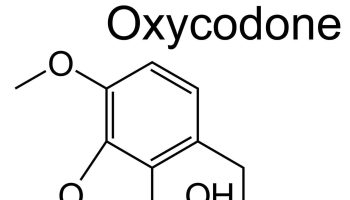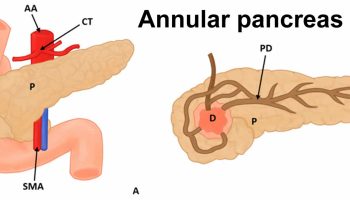Contents
Blood urea nitrogen
Blood urea nitrogen (BUN) test, is a common blood test that can provide important information about how well your kidneys and liver are working. A blood urea nitrogen (BUN) test measures the amount of urea nitrogen that’s in your blood. The determination of serum blood urea nitrogen currently is the most widely used screening test for the evaluation of kidney function. The blood urea nitrogen (BUN) test is frequently requested along with the serum creatinine test since simultaneous determination of these 2 compounds appears to aid in the differential diagnosis of prerenal, renal and postrenal hyperuremia.
Urea is a waste product formed in the liver when protein is metabolized into its component parts (amino acids) . This process produces ammonia, which is then converted into the less toxic waste product urea in the liver. This is the most important catabolic pathway for eliminating excess nitrogen in the human body.
Nitrogen is a component of both ammonia and urea. Urea and urea nitrogen are referred to somewhat interchangeably because urea contains nitrogen and because urea/urea nitrogen is the “transport method” used by the body to rid itself of excess nitrogen. Urea is released by the liver into the blood and is carried to the kidneys, where it is filtered out of the blood and released into the urine. Since this is an ongoing process, there is usually a small but stable amount of urea nitrogen in the blood.
Here’s how your body typically forms and gets rid of urea nitrogen:
- Your liver produces ammonia — which contains nitrogen — after it breaks down proteins used by your body’s cells.
- The nitrogen combines with other elements, such as carbon, hydrogen and oxygen, to form urea, which is a chemical waste product.
- The urea travels from your liver to your kidneys through your bloodstream.
- Healthy kidneys filter urea and remove other waste products from your blood.
- The filtered waste products leave your body through urine.
A blood urea nitrogen (BUN) test can reveal whether your urea nitrogen levels are higher than normal, suggesting that your kidneys or liver may not be working properly.
The main job of your kidneys is to remove waste and extra fluid from your body. If you have kidney disease, urea (a waste material) can build up in your blood and may lead to serious health problems, including high blood pressure, anemia, and heart disease.
Most diseases or conditions that affect the kidneys or liver have the potential to affect the amount of urea present in the blood. If increased amounts of urea are produced by the liver or if the kidneys are not working properly and have difficulty filtering wastes out of the blood, then urea concentrations will rise in the blood. If significant liver damage or disease inhibits the production of urea, then blood urea nitrogen concentrations may fall.
People with early kidney disease may not have any symptoms. A blood urea nitrogen (BUN) test can help uncover kidney problems at an early stage when treatment can be more effective.
You may need a blood urea nitrogen test:
- If your doctor suspects that you have kidney damage
- If your kidney function needs to be evaluated
- To help determine the effectiveness of dialysis treatment if you’re receiving hemodialysis or peritoneal dialysis
- As part of a blood test group to help diagnose a number of other conditions, such as liver damage, urinary tract obstruction, congestive heart failure or gastrointestinal bleeding — although an abnormal blood urea nitrogen test result alone doesn’t confirm any of these conditions
If kidney problems are the main concern, the creatinine levels in your blood will likely also be measured when your blood is tested for urea nitrogen levels. Creatinine is another waste product that healthy kidneys filter out of your body through urine. High levels of creatinine in your blood may be a sign of kidney damage.
Your doctor may also test how well your kidneys are removing waste from the blood. To do this, you may have a blood sample taken to calculate your estimated glomerular filtration rate (GFR). The GFR estimates the percentage of kidney function you have left.
Blood urea nitrogen test
Blood urea nitrogen test measures the amount of urea nitrogen in your blood. A blood urea nitrogen (BUN) test can reveal whether your urea nitrogen levels are higher than normal, suggesting that your kidneys or liver may not be working properly.
The blood urea nitrogen is primarily used, along with the creatinine test, to evaluate kidney function in a wide range of circumstances, to help diagnose kidney disease, and to monitor people with acute or chronic kidney dysfunction or failure. Blood urea nitrogen (BUN) test also may be used to evaluate a person’s general health status when ordered as part of a renal panel, basic metabolic panel (BMP) or comprehensive metabolic panel (CMP).
Urea is a waste product formed in the liver when protein is metabolized. Urea is released by the liver into the blood and is carried to the kidneys, where it is filtered out of the blood and released into the urine. Since this is an ongoing process, there is usually a small but stable amount of urea nitrogen in the blood. However, when the kidneys cannot filter wastes out of the blood due to disease or damage, then the level of urea in the blood will rise.
The kidneys are a pair of bean-shaped organs that are located at the bottom of the ribcage in the right and left sides of the back. Within them are about a million tiny blood filtering units called nephrons. In each nephron, blood is continually filtered through a microscopic cluster of looping blood vessels, called a glomerulus. The glomerulus allows the passage of water and small molecules but retains blood cells and larger molecules. Attached to each glomerulus is a tiny tube (tubule) that collects the fluid and molecules that pass through the glomerulus and then reabsorbs what can be used by the body. The remaining waste forms urine.
If the creatinine and blood urea nitrogen (BUN) tests are found to be abnormal or if someone has an underlying disease that is known to affect the kidneys, such as diabetes or high blood pressure, then creatinine and blood urea nitrogen (BUN) tests may be used to monitor for kidney dysfunction and the effectiveness of treatment. Blood creatinine and blood urea nitrogen (BUN) tests may also be ordered to evaluate kidney function prior to some procedures, such as a CT (computed tomography) scan, that may require the use of drugs that can damage the kidneys.
What is a blood urea nitrogen/creatinine ratio?
Occasionally, a health practitioner will look at the ratio between a person’s blood urea nitrogen and blood creatinine to help determine what is causing these concentrations to be higher than normal. The ratio of blood urea nitrogen to creatinine is usually between 10:1 and 20:1. An increased ratio may be due to a condition that causes a decrease in the flow of blood to the kidneys, such as congestive heart failure or dehydration. It may also be seen with increased protein, from gastrointestinal bleeding, or increased protein in the diet. The ratio may be decreased with liver disease (due to decrease in the formation of urea) and malnutrition.
What other tests are used with the blood urea nitrogen test to check how my kidneys are functioning?
Blood urea nitrogen and creatinine are the primary tests used to check how well the kidneys are able to filter waste products from your blood. Your healthcare provider may also order a renal panel or electrolyte tests, such as sodium and potassium, or calcium to help understand how your kidneys are functioning.
When is blood urea nitrogen (BUN) ordered?
Blood urea nitrogen (BUN) is part of both the basic metabolic panel (BMP) and comprehensive metabolic panel (CMP), groups of tests that are widely used:
- As part of a routine health checkup
- To check how the kidneys are functioning before starting to take certain drug therapies
- When an acutely ill person comes to the emergency room and/or is admitted to the hospital
- During a hospital stay
Blood urea nitrogen (BUN) is often ordered with creatinine or renal panel when kidney problems are suspected. Some signs and symptoms of kidney dysfunction include:
- Fatigue, lack of concentration, poor appetite, or trouble sleeping
- Swelling or puffiness (edema), particularly around the eyes or in the face, wrists, abdomen, thighs, or ankles
- Urine that is foamy, bloody, or coffee-colored
- A decrease in the amount of urine
- Problems urinating, such as a burning feeling or abnormal discharge during urination, or a change in the frequency of urination, especially at night
- Mid-back pain (flank), below the ribs, near where the kidneys are located
- High blood pressure
Blood urea nitrogen (BUN) also may be ordered:
- At regular intervals to monitor kidney function in those with chronic diseases or conditions such as diabetes, congestive heart failure, and myocardial infarction (heart attack)
- At regular intervals to monitor kidney function and treatment in people with known kidney disease
- Prior to and during certain drug treatments to monitor kidney function
- Along with a creatinine when a CT scan is planned
- At regular intervals to monitor the effectiveness of dialysis
Normal blood urea nitrogen levels
Results of the blood urea nitrogen test are measured in milligrams per deciliter (mg/dL) in the United States and in millimoles per liter (mmol/L) internationally. In general, around 7 to 20 mg/dL (2.5 to 7.1 mmol/L) is considered normal.
But normal ranges may vary, depending on the reference range used by the lab, and your age. Ask your doctor to explain your results.
Males
- 1-17 years: 7-20 mg/dL (2.5 to 7.1 mmol/L)
- > or =18 years: 8-24 mg/dL
Reference values have not been established for patients who are <12 months of age.
Females
- 1-17 years: 7-20 mg/dL (2.5 to 7.1 mmol/L)
- > or =18 years: 6-21 mg/dL
Reference values have not been established for patients who are <12 months of age.
NOTE: Blood urea nitrogen levels increase with age. Blood urea nitrogen levels in very young babies are about 2/3 of the levels found in healthy young adults, while levels in adults over 60 years of age are slightly higher than younger adults.
What does abnormal blood urea nitrogen test result mean?
High blood urea nitrogen levels
Increased blood urea nitrogen levels suggest impaired kidney function. This may be due to acute or chronic kidney disease, damage, or failure. It may also be due to a condition that results in decreased blood flow to the kidneys, such as congestive heart failure, shock, stress, recent heart attack, or severe burns, to conditions that cause obstruction of urine flow, or to dehydration. If kidney damage is a concern, ask your doctor what factors may be contributing to the damage and what steps you can take to try to control them.
Blood urea nitrogen concentrations may be elevated when there is excessive protein breakdown (catabolism), significantly increased protein in the diet, or gastrointestinal bleeding (because of the proteins present in the blood).
Blood urea nitrogen levels can increase with the amount of protein in the diet. High-protein diets may cause abnormally high blood urea nitrogen levels while very low-protein diets can cause an abnormally low blood urea nitrogen.
A wide variety of drugs can cause an increase in blood urea nitrogen. Drugs that can decrease blood urea nitrogen include chloramphenicol and streptomycin. Inform your healthcare provider of any medications you are taking.
Both decreased and increased blood urea nitrogen concentrations may be seen during a normal pregnancy.
Generally, a high blood urea nitrogen level means your kidneys aren’t working well. But elevated blood urea nitrogen can also be due to:
- Kidney disease, including glomerulonephritis, pyelonephritis, and acute tubular necrosis
- Kidney failure
- Urinary tract obstruction
- Congestive heart failure
- Recent heart attack
- Gastrointestinal bleeding
- Dehydration, resulting from not drinking enough fluids or for other reasons
- Shock
- Severe burns
- Certain medications, such as some antibiotics
- A high-protein diet
Low blood urea nitrogen levels
Low blood urea nitrogen levels are not common and are not usually a cause for concern. They may be seen in severe liver disease, malnutrition, and sometimes when a person is overhydrated (too much fluid volume), but the blood urea nitrogen test is not usually used to diagnose or monitor these conditions.
If one kidney is fully functional, blood urea nitrogen concentrations may be normal even when significant dysfunction is present in the other kidney.
Lower-than-normal blood urea nitrogen level may be due to:
- Liver failure — For people with liver disease, the blood urea nitrogen level may be low, even if the kidneys are normal.
- Low protein diet
- Malnutrition
- Over-hydration





